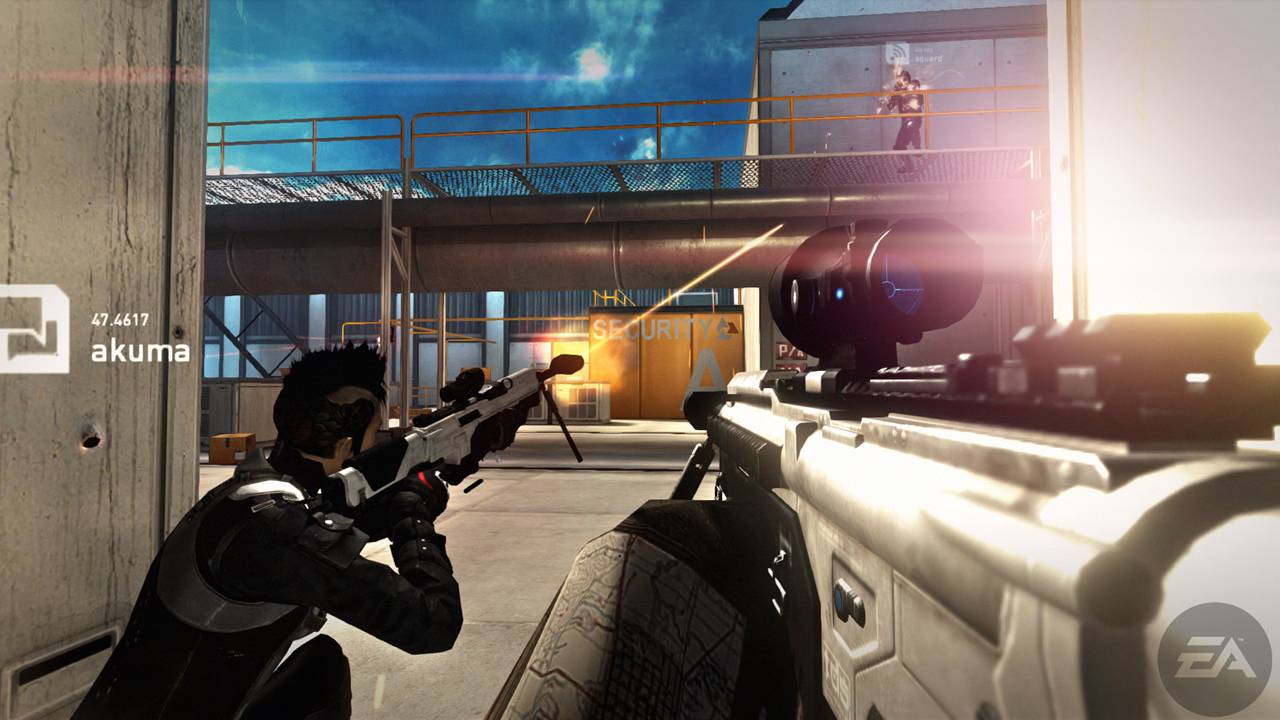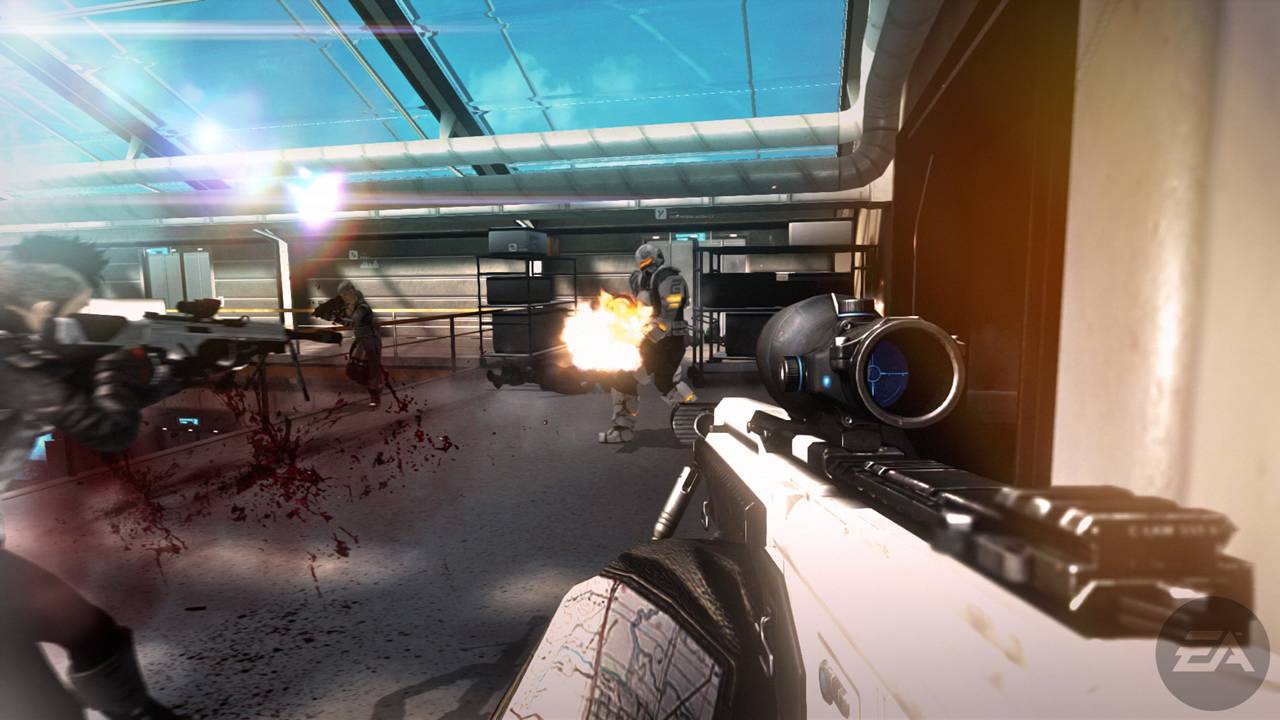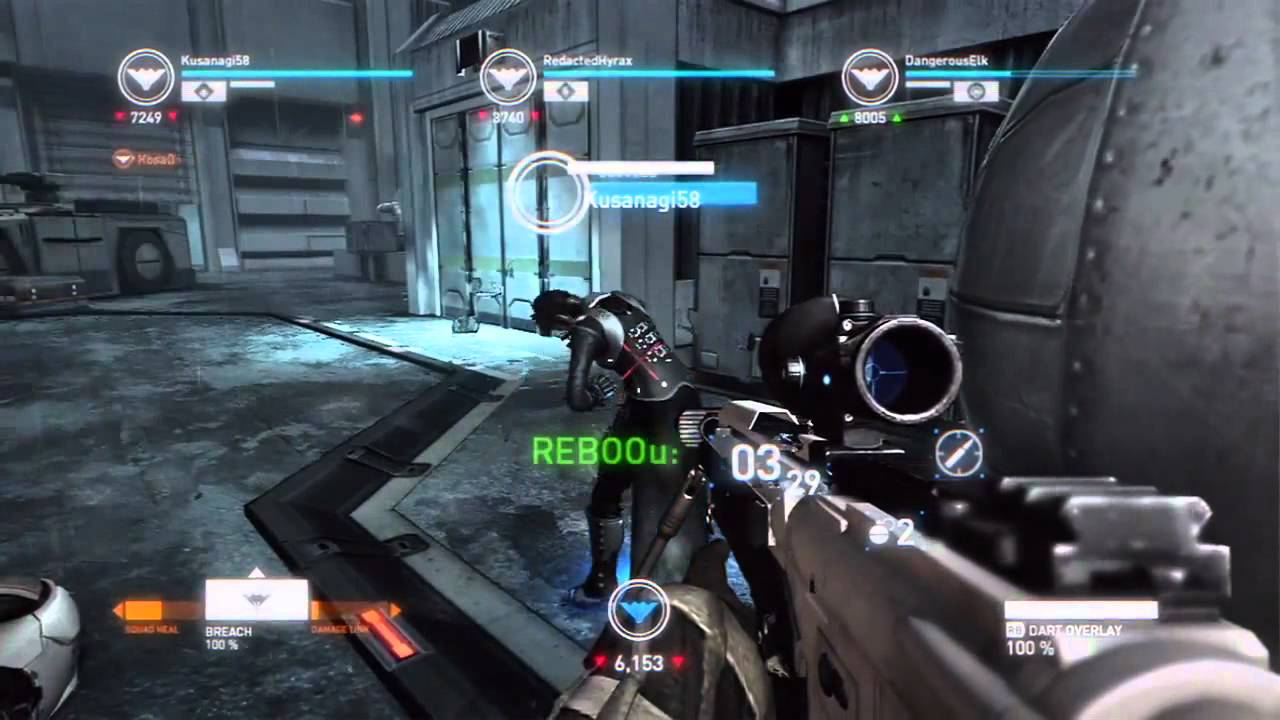The first-person shooter genre continues to enjoy mainstream popularity ever since the original Quake and Duke Nukem hit the seams back in the ’90s, and it shows no signs of slowing down anytime soon. Over the years, fans have been treated to plenty of varied experiences ranging from military shooters to tactical shooters and whatnot, but there are also plenty of great games that most players missed out on for some reason or another.
Today, we will be taking a look at Starbreeze Studios’ 2012 release Syndicate which definitely falls under this category of games that slipped under the radar for most fans. Syndicate was subject to divisive critical reception which led to underperforming sales and eventually deemed the game a disappointing release – but that’s not indicative of the entire story. Sure, Syndicate does have plenty of rough edges that we will be talking about – but it also has plenty of merits that are worth discussing.
[embedded content]
Syndicate takes place in the year 2069 and paints a dystopian yet familiar vision of the future where megacorporations rule the world and huge cities are filled with towering skyscrapers and bustling air traffic. The narrative here revolves around a peculiar data chip that enables users to access any information available across a massive databank and those who choose to use the chip fall under the indirect influence of these megacorps. As a mercenary for hire, it’s up to you to put an end to these digital shenanigans by whatever means necessary, and that leads our protagonist Miles Kilo down a path lined with conspiracies and plot twists.
The story isn’t anything special, but the characters are well-written and well performed which makes for a pretty entertaining ride through and through. And despite the familiarity of it all, Syndicate’s representation of a cyberpunk future looks visually appealing with great art direction evident across its environments. The team makes heavy use of bloom in the visuals which was one of the major points of criticism when it was released, but that also lends a rather distinct sense of visual identity to the game. The game has a pretty clean visual aesthetic overall that surprisingly holds up well to this date, though some of it could be credited to the high-resolution textures and gorgeous lighting effects that are used to render its maps.

But much of what makes Syndicate so great stems from the gameplay side of it all. You see, Syndicate was actually a real-time strategy game that came out back in 1993, and the 2012 FPS serves as a spiritual successor to that title. Translating those elements into a completely different genre is obviously a pretty tough task, but Starbreeze Studios has done a commendable job of handling that transition. On a surface level, Syndicate’s first-person shooting mechanics look like a pretty standard affair – you can run, jump, slide, and hide behind cover as you clear out rooms filled with enemies. But as you start to really dig into the game, you will come to realize that Syndicate has quite a bit more to offer than just shooting dudes in the face.
The protagonist has a DART chip infused in his head that enables you to perform different kinds of special moves on your enemies. You could hack an enemy’s operating systems and cause their weapons to malfunction, lose control, and temporarily serve as your ally, or just straight up shooting themselves in the face for an easy kill. It’s not much in terms of the numbers themselves but using these abilities smartly in a tactical fashion while actively seeking out cover can make for some really engaging firefights.
It also helps that the enemy variety here continuously forces you to keep changing your strategy and remain quick-witted to ensure chances of survival. The game often throws in heavier armored units with lighter cannon fodder enemies which can quickly down you in a matter of few hits forcing you to use the aforementioned utilities in smart ways to clear out rooms of enemies without getting obliterated by the opposition.

Syndicate’s variety of weapons is also something that helps in adding depth to these firefights. Unlike many shooters of the time where almost every firearm can be used to great effect in any situation, Syndicate’s offerings of weapons demand that players use them with intention to ensure maximum effectiveness. Furthermore, you could also fit these weapons with different attachments and upgrades that can sometimes even change the functionality in a drastic manner.
You also get the occasional mini gun with unlimited ammunition to decimate entire rooms of enemies without breaking a sweat, and that makes for some really interesting sections that deliver an unmatchable sense of power fantasy. In addition to this, there are also more than a couple of boss fights with augmented soldiers peppered throughout the campaign, and while they might not be the toughest fights in all of gaming – they definitely serve the purpose of adding some much-needed variety to the experience.
One of the more interesting things about Syndicate is that it’s a largely animation-driven game that adds a rather refreshing sense of realism and tangible heft to every movement that the player makes. Just notice how the placement of your weapon subtly changes as you hide behind different pieces of cover, and how it all functions when you lean over and shoot. Animations rarely break, and transitions happen pretty smoothly which looks very pleasing to the eye. Many of these ideas and concepts can be traced back to Starbreeze’s prior works like The Chronicles of Riddick: Escape From Butcher Bay, but Syndicate improves on these aspects by a significant margin which makes for a very endearing gameplay experience.

And who can forget the co-op campaign? Syndicate also features a co-op campaign where up to four players can drop in and complete more than a handful of missions with increasing enemy presence. Players are also free to choose between different character classes that each come with their own strengths and weaknesses, which forces you to play off each others’ strengths to have a shot at success. It’s a pretty fun game mode that serves as a great hook to keep you coming back time and time again once you are done with the solo campaign.
To say that Syndicate is a flawless game would be a massive overstatement. There are definitely quite a few things that the developers could have improved on. For instance, the animation-driven gameplay has some downsides that it doesn’t feel as responsive as contemporaries like Killzone or Overwatch, the enemies can feel like bullet sponges at times as some stronger variants can eat up entire magazines without going down, and certain stretches of the story can feel somewhat boring and uneventful.
But despite those flaws, Syndicate is a game that manages to deliver a consistently engaging and quality experience throughout its run. It’s not a misunderstood masterpiece by any means, but it definitely stands out amongst other shooters of its time mostly due to the fact that encounters and shooting generally have some level of depth and variety that many of its peers lacked. Sure, it might not have the constant onslaught of high-intensity set-piece moments – but that tradeoff is worth it for the added mechanical complexity. If Syndicate is something that you never tried, you should definitely give it a shot and there’s a good chance that you might end up being genuinely surprised.
Note: The views expressed in this article are those of the author and do not necessarily represent the views of, and should not be attributed to, GamingBolt as an organization.


Comments are closed.